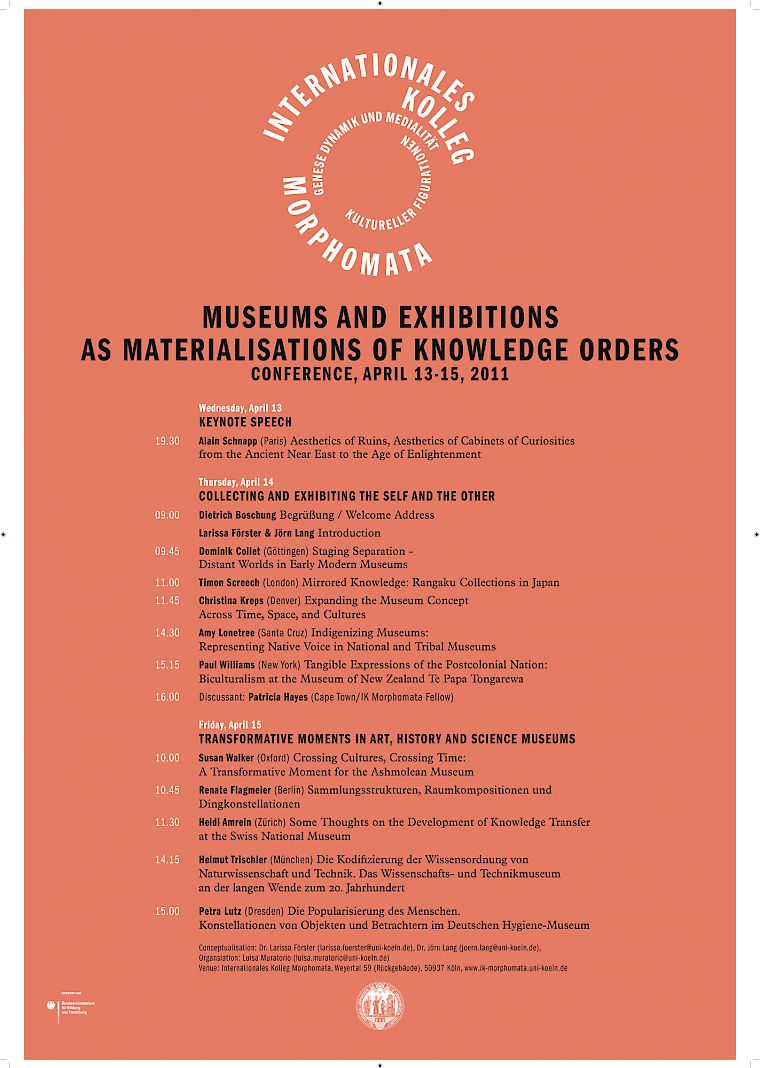The history of the museum is closely connected not only with the history of collecting and collections, but also with the history of science and the humanities in Europe and the Western world. Science museums, natural history museums, cultural history and art museums have – by means of their presentation of objects – always been sites of both the production and the circulation of knowledge. On the one hand, objects, artefacts and specimens have been collected and classified in order to gain empirical and/or theoretical insights and thereby produce knowledge. On the other hand, the resulting collections were and are used in exhibitions in order to communicate academic findings to a broader audience and thereby popularise scientific/academic knowledge. Hence, museum collections as well as displays can be understood as manifestations of specific, historically shaped popular or academic orders of knowledge.
However, knowledge is not only stored and transformed through objects in museums. Rather, museums themselves can be regarded as artefacts and as »morphomes«, which establish, reinforce and transmit, but also transform and reconfigure systems of knowledge. The aim of the conference is to discuss different types of museums and exhibitions from this angle, and particularly to reflect on transformative moments in the history of museums.
